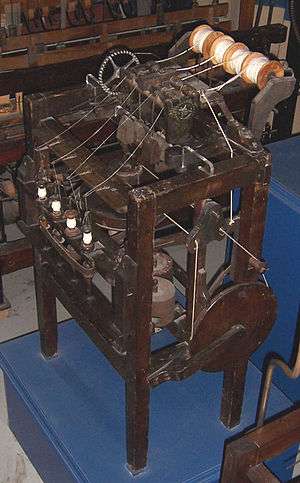
John Kay (cricket journalist)
John Kay (born 1909 or 1910, died 16 February 1999, aged 89) was a British cricket correspondent for the Manchester Evening News from the end of the Second World War to 1975 and for the Brighton Argus. He toured Australia for the 1950-51 Ashes series for the Manchester Evening News and wrote several cricketing books, including Ashes to Hassett (1951) and Cricket in the Leagues (1970). He played for Middleton in the Central Lancashire League and when Basil d'Oliveira emigrated from South Africa in 1960 because Apartheid banned him from playing first-class cricket he arranged for him to play for Middleton as a professional. He wrote that d'Oliveira was surprised to see white people serving him in restaurants and doing menial work. D'Oliveira later played for Worcestershire County Cricket Club (from 1964) and England (from 1966).
Kay's prose style was colourful and he could be critical, as evidenced by these two examples from Ashes to Hassett
All Australia honoured Hutton as the world's best batsman, and never did a man play harder or more successfully on his country's behalf…One man cannot make a cricket team, but Len Hutton did the next best thing in Australia last winter. He stood alone. Superb in craftsmanship, magnificent in the hour of stress, veritably a giant among all batsmen and worthy of ranking with such famous names as Hobbs, Sutcliffe, Woolley, Hammond ... they were masters of all they surveyed. So was Hutton.
John Kay
John Kay is the name of:

John Kay (spinning frame)
John Kay was a clockmaker from Warrington, Lancashire, England, associated with the scandal surrounding invention of the spinning frame in 1767, an important stage in the development of textile manufacturing in the Industrial Revolution. Kay constructed the first known frame, and is one of the claimants to having been its inventor. He is sometimes confused with the unrelated John Kay who had invented the flying shuttle thirty years earlier.
John Kay and Thomas Highs
In 1763, Kay was a married clockmaker in Leigh. His neighbour, Thomas Highs, was an inventor, and the two collaborated in textile-machinery experiments. Exactly what technologies, and contributions the two men worked on then became the subject of several controversial court cases, but among other things, Kay and Highs probably investigated textile-spinning by means of rollers.
(By 1763 weaving had been greatly automated, but spinning was still done by hand wheel. Research into using mechanical rollers to replace hand spinning had started in the first half of the century; Lewis Paul had the first model in 1738, but further development was needed to make it profitable.)
John Kay (poet born 1958)
John Kay (born April 5, 1958 in Bury, Lancashire) is a British poet and teacher who is currently living in Bournemouth, Dorset.
Poetry competitions
Kay has taken part in many poetry competitions, including:
Magazines & Publications
Kay has also been involved with a number of magazines and publications; these include Poet in Profile, South 35, 2007, Interpreter’s House, South, Doors, Poetry File and his local newspaper, the Bournemouth Daily Echo. He has also recently published his first collection of verse, It Wouldn't Do, Collection 2008.
Performance
Kay has been actively involved with a number of readings locally and further afield, these include among others:
Podcasts:

